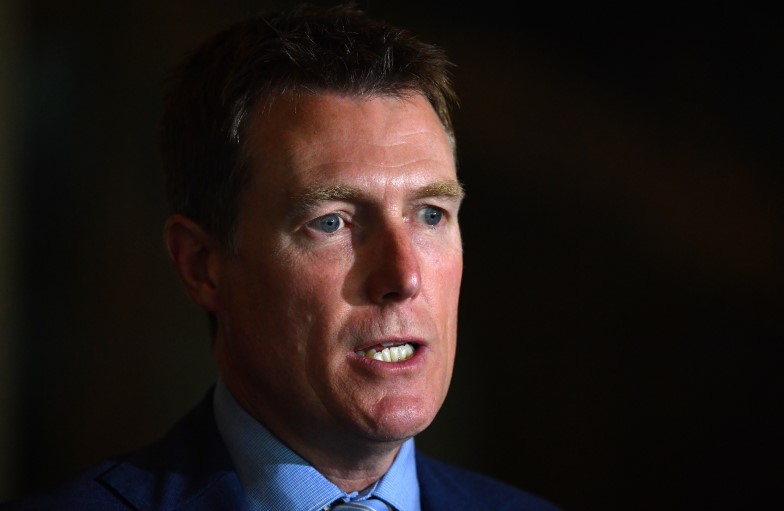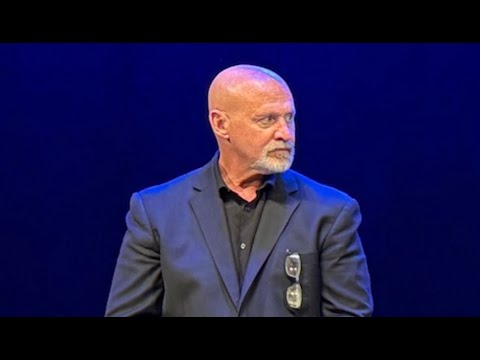As Alan Tudge tried to protect Christian Porter from embarrassment, so Porter is trying to protect Alexander Downer from scrutiny over his role in the bugging of Timor-Leste.
Privilege protects privilege.
So it seems after further revelations today about how Alan Tudge pressured an ABC journalist to delete a photo taken in a Canberra night spot that, according to Four Corners’ bombshell report on Monday, would have embarrassed and compromised Christian Porter.
Any minister of the Crown learning that a colleague may have placed themselves in a position to be compromised should have immediately alerted the prime minister, possibly for referral to intelligence agencies. Public Bar in Manuka is a well-known locale for politicians, staffers and journalists, the latest in a succession of such nightspots in Canberra.
Don’t think people connected to foreign intelligence services weren’t mingling there on Wednesday nights as well. Who else took a photo of Porter, more surreptitiously?
In any event, Tudge, a child of Melbourne privilege — elite Haileybury, Melbourne University, Harvard — sought to protect another child of privilege, Christian Porter, whose offensive frat house behaviour as a young man — as opposed to his alleged continuing partying these days — was well documented by the ABC.
Significant as it is in itself, the incident is the perfect symbol for what party boy Porter himself is doing for Alexander Downer.
Downer ordered ASIS to bug the cabinet rooms of the Timor-Leste government in 2004 in order to give Australia an advantage over the fledgling state in negotiations over resources in the Timor Sea. The advantage gained would accrue to resources company/de facto government agency Woodside. After leaving politics, Downer took a job with Woodside. His DFAT secretary of the time, Ashton Calvert, took a directorship.
Porter’s authorisation of the prosecution of Witness K and Bernard Collaery for revealing ASIS’ crime is intended to punish them for exposing Downer and the Howard government. Porter’s conduct in the prosecution, however, is designed to cover up Downer’s role.
He has sought to make the trial secret, he has repeatedly intervened in proceedings (separately from the DPP; Collaery and K face two legal oppositions — the barristers of the DPP, and Porter’s barrister trying to keep as much as possible secret); Porter has so stymied and delayed the trial of Collaery that his barrister has been twice chided by magistrates for delays.
There is a key question in this trial about Downer: what authority did he have to authorise ASIS’ conduct? Did prime minister Howard, his cabinet or the National Security Committee approve it, or did Downer decide himself? We may never publicly learn the answer to that crucial question because Porter is trying to keep it secret.
Privilege protecting privilege.
Only, instead of demanding the deletion of a photo, Porter is trashing basic rights like open trials and long-standing norms like the Commonwealth’s status as a model litigant.
Porter’s conduct has had enormous impacts on K and Collaery — two men who have served their country and protected its national security in ways Porter could only dream about as he sleeps off another big night on the dance floor. K remains unclear exactly as to what he is being asked to plead guilty to, having indicated that, given his health and the mental toll Porter’s vexatious prosecution has inflicted, he wants the whole thing done with.
Collaery’s practice has been wrecked and he is living on borrowings. The process has so far dragged on for more than two years, with 42 hearings so far without a trial date in sight — the majority driven by Porter’s interventions.
It includes the juvenile tactic of requiring Collaery to travel interstate to view, but not retain, the allegedly secret brief directed against him. All while Porter, according to footage aired by the ABC, carried on carousing, and allegedly compromising himself as a national security risk far worse than even the fantasies claimed by the prosecution of K and Collaery.
The bugging of Timor-Leste and the persecution of K and Collaery are the biggest political scandal of recent decades in Australia. That the press gallery seems to have been mostly uninterested in it — or have fallen for Porter’s tactic of dragging things out so long people forget about it — doesn’t change that.
It’s been a raw demonstration of the ugliness of how power is used in Australia by well-connected corporations, their political shills and the parties that protect and enable them. Power used at the expense of the people of Timor-Leste. Power used at the expense of K and Collaery.
And despite Porter’s efforts at secrecy, at least some of it has occurred in plain sight at the ACT Law Courts building, in full view of the press gallery if they wanted to come five minutes down the road.
Like Porter’s alleged behaviour in Public Bar, in full view five minutes in the other direction from Parliament House.
If you’re not enraged by the smug, smirking indecency of it all, you might want to check your moral compass. It’s an obscenity.




A lot can happen in 3 months.
3 months is a long time in 2020. Join us to make sense of it all.
Get you first 12 weeks of Crikey for just $12. Cancel anytime.
Peter Fray
Editor-in-chief of Crikey








